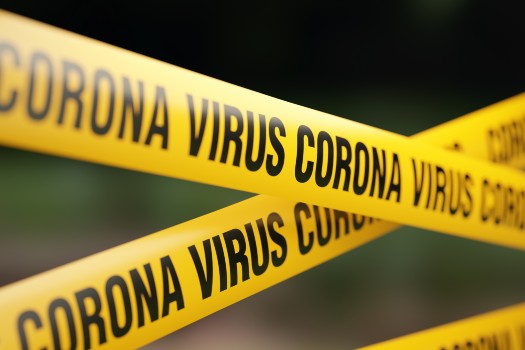GPs forced to draw up own emergency plans amid coronavirus confusion

GPs left as ‘sitting ducks’ by a lack of guidance from NHS England on how to manage patients turning up with respiratory symptoms have begun to create their own emergency plans.
Practices say a lack of proper protection, high numbers of patients with respiratory symptoms and NHS 111 reportedly sending them patients with flu symptoms, is making life on the front line incredibly challenging.
Guidance was updated on Tuesday to include the recommendation that GPs should now treat any flu-like illness requiring hospitalisation as a possible coronavirus (Covid-19) case, regardless of travel history.
But GPs responded that the only way to determine if someone needs admission is to examine the patient, of which there are potentially multiple cases a day in a big practice.
Dr Mike Smith, a GP partner at the Maltings Surgery in St Albans, said the realisation that there would be no guidance coming prompted the practice to put together its own action plan and share it on social media.
‘The guidance that is coming out is very focused on secondary care and community services and there is nothing on how to manage front door general practice so we decided to take the pragmatic view that we couldn’t with all moral consciousness expose staff and patients.
‘The thing we have learnt from NHS England is that the cavalry is not coming.’
A detailed action plan put together by the 20,000-patient practice – who purchased their own full PPE equipment – includes creating a ‘red zone’ area where healthcare staff can examine patients who are low risk for Covid-19 but who have symptoms.
‘I have 70-odd staff and we had been saying to them any minute we will get guidance but it didn’t come so we just had to do it. The longer we leave it, the longer we’re exposed and the more potentially damaging the situation will be.’
Dr Helen Salisbury, a Health Action Party executive member and a GP in Oxford, will be asking all local practices to stop routine consultations today.
In a tweet yesterday, she said: ‘At our CCG and PCN meeting tomorrow I will be calling on all local practices to stop routine work (long term condition reviews, smears etc) now.
‘The risk of meeting someone with Covid-19 in the waiting room outweighs any possible benefit.’
Justifying her position to colleagues, she said: ‘I think it is inevitable that we will have infected patients in our surgeries however much we try to triage and send them elsewhere. I am worried about staff and patients.’
Responding to Dr Salisbury’s tweet, Dr Anne Murphy, a GP in London, said: ‘Can’t speak for others but we’re now trying to very rapidly move lots of [people] into [six] months of repeat dispensing – so their pharmacy will have the next box ready just as the current one runs out.’
Other GPs said they were triaging all respiratory patients and only examining those where they felt an examination would change care.
In a letter to GPs on the 10 March, NHS England said that for annual reviews of vulnerable patients there ‘may be circumstances in which you judge that the balance of risk and benefit makes it essential that these should be offered remotely using telephone or digital channels, without any face-to-face component, rather than cancelling’.
Dr Richard Cook, a GP in West Sussex said GPs were all struggling to manage patient triage as best they could and many coming up with their own action plans.
‘Our practice is reviewing the situation daily and have set up a mini Cobra-style meeting tomorrow to come up with a plan.
‘The current uncertainties are putting either patients, or staff, at some risk at the moment.
‘It is time consuming as well – we are moving towards a lot more phone/video appointments and trying to keep patients away from the surgeries if possible,’ he added.
‘We are mindful of our contractual obligations which have not changed, and also the need not to miss the sick patients who need treatment – Covid-19 or otherwise.’
As of 11 March, 27,476 people have been tested in the UK, of which 27,020 were confirmed negative and 456 were confirmed as positive. Six patients who tested positive for Covid-19 have died.
The Word Health Organization yesterday declared that the outbreak is now classed as a global pandemic, while the Government set up a £5bn emergency fund to deal with the crisis and the Bank of England slashed interest rates to protect the economy.
Pulse July survey
Take our July 2025 survey to potentially win £1.000 worth of tokens












